Waylon Jennings - Waylon Live: The Expanded Edition (1976/2003)
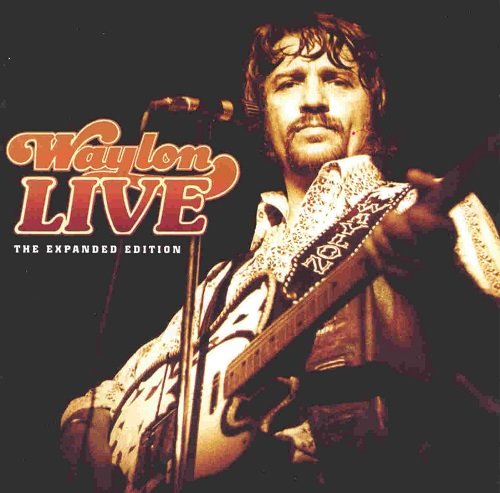
Artist: Waylon Jennings
Title: Waylon Live: The Expanded Edition
Year Of Release: 1976/2003
Label: RCA Nashville
Genre: Country
Quality: Mp3 320 / Flac (tracks, log)
Total Time: 01:00:56 + 01:06:41
Total Size: 312/834 Mb (covers)
WebSite: Album Preview
Title: Waylon Live: The Expanded Edition
Year Of Release: 1976/2003
Label: RCA Nashville
Genre: Country
Quality: Mp3 320 / Flac (tracks, log)
Total Time: 01:00:56 + 01:06:41
Total Size: 312/834 Mb (covers)
WebSite: Album Preview
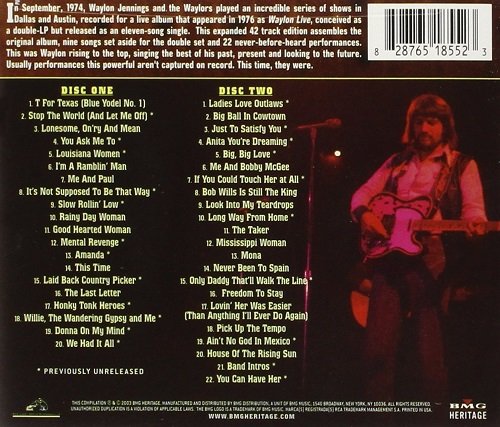
Tracklist:
CD 1:
01. T For Texas (Blue Yodel No.1)
02. Stop The World (And Let Me Off)
03. Lonesome, On'ry And Mean
04. You Ask Me To
05. Louisiana Women
06. I'm A Ramblin' Man
07. Me And Paul
08. It's Not Supposed To Be That Way
09. Slow Rollin' Low
10. Rainy Day Woman
11. Good Hearted Woman
12. Mental Revenge
13. Amanda
14. This Time
15. Laid Back Country Picker
16. The Last Letter
17. Honky Tonk Heroes
18. Willie, The Wandering Gypsy and Me
19. Donna On My Mind
20. We Had It All
CD 2:
01. Ladies Love Outlaws
02. Big Ball In Cowtown
03. Just To Satisfy You
04. Anita You're Dreaming
05. Big, Big Love
06. Me And Bobby McGee
07. If You Could Touch Her At All
08. Bob Wills Is Still The King
09. Look Into My Teardrops
10. Long Way From Home
11. The Taker
12. Mississippi Woman
13. Mona
14. Never Been To Spain
15. Only Daddy That'll Walk The Line
16. Freedom To Stay
17. Lovin' Her Was Easier (Than Anything I'll Ever Do Again)
18. Pick Up The Tempo
19. Ain't No God In Mexico
20. House Of The Rising Sun
21. Band Intros
22. You Can Have Her
Waylon Arnold Jennings (June 15, 1937 – February 13, 2002) was an American singer, songwriter, and musician. In 1958, Buddy Holly arranged Jennings's first recording session, and hired him to play bass. Jennings gave up his seat on the ill-fated flight in 1959 that crashed and killed Holly, J. P. "The Big Bopper" Richardson and Ritchie Valens. During the 1970s, Jennings was instrumental in the inception of outlaw country and recorded country music's first platinum album, Wanted! The Outlaws with Willie Nelson, Tompall Glaser, and Jessi Colter.
Jennings began playing guitar at age eight and began performing at age twelve on KVOW radio, after which he formed his first band, The Texas Longhorns. Jennings left high school at age sixteen, determined to become a musician, and bounced around as a performer and DJ on KVOW, KDAV, KYTI, KLLL, in Coolidge, Arizona, and Phoenix. He formed a rockabilly club band, The Waylors, and enjoyed a residency at "JD's", a club in Scottsdale, Arizona. He recorded for independent label Trend Records and A&M Records, but did not achieve success until moving to RCA Victor, taking on Neil Reshen as a manager, who negotiated significantly better touring and recording contracts for him.
After finally wresting creative control from RCA Victor, his career turning point became the critically acclaimed albums Lonesome, On'ry and Mean and Honky Tonk Heroes followed by hit albums Dreaming My Dreams as well as Are You Ready for the Country. 1976's platinum-certified Wanted! The Outlaws was followed by Ol' Waylon and the hit song "Luckenbach, Texas".
Jennings was featured in the 1978 album White Mansions performed by various artists documenting the lives of people in the Confederacy during the Civil War. The songs on the album were written by Paul Kennerley. Jennings also appeared in films and television series, including Sesame Street, and a stint as the balladeer for The Dukes of Hazzard, composing and singing the show's theme song and providing narration for the show.
By the early 1980s, Jennings was struggling with a cocaine addiction, which he overcame in 1984. Later, he joined the country supergroup The Highwaymen with Willie Nelson, Kris Kristofferson, and Johnny Cash, which released three albums between 1985 and 1995. During that period, Jennings released the successful album Will the Wolf Survive.
He toured less after 1997 to spend more time with his family. Between 1999 and 2001, his appearances were limited by health problems. In 2001, he was inducted into the Country Music Hall of Fame, which he did not attend due to illness. On February 13, 2002, Jennings died from complications of diabetes. In 2007, he was posthumously awarded the Cliffie Stone Pioneer Award by the Academy of Country Music.
Jennings began playing guitar at age eight and began performing at age twelve on KVOW radio, after which he formed his first band, The Texas Longhorns. Jennings left high school at age sixteen, determined to become a musician, and bounced around as a performer and DJ on KVOW, KDAV, KYTI, KLLL, in Coolidge, Arizona, and Phoenix. He formed a rockabilly club band, The Waylors, and enjoyed a residency at "JD's", a club in Scottsdale, Arizona. He recorded for independent label Trend Records and A&M Records, but did not achieve success until moving to RCA Victor, taking on Neil Reshen as a manager, who negotiated significantly better touring and recording contracts for him.
After finally wresting creative control from RCA Victor, his career turning point became the critically acclaimed albums Lonesome, On'ry and Mean and Honky Tonk Heroes followed by hit albums Dreaming My Dreams as well as Are You Ready for the Country. 1976's platinum-certified Wanted! The Outlaws was followed by Ol' Waylon and the hit song "Luckenbach, Texas".
Jennings was featured in the 1978 album White Mansions performed by various artists documenting the lives of people in the Confederacy during the Civil War. The songs on the album were written by Paul Kennerley. Jennings also appeared in films and television series, including Sesame Street, and a stint as the balladeer for The Dukes of Hazzard, composing and singing the show's theme song and providing narration for the show.
By the early 1980s, Jennings was struggling with a cocaine addiction, which he overcame in 1984. Later, he joined the country supergroup The Highwaymen with Willie Nelson, Kris Kristofferson, and Johnny Cash, which released three albums between 1985 and 1995. During that period, Jennings released the successful album Will the Wolf Survive.
He toured less after 1997 to spend more time with his family. Between 1999 and 2001, his appearances were limited by health problems. In 2001, he was inducted into the Country Music Hall of Fame, which he did not attend due to illness. On February 13, 2002, Jennings died from complications of diabetes. In 2007, he was posthumously awarded the Cliffie Stone Pioneer Award by the Academy of Country Music.
![Hyper Elastic Jinx - We Vote Force Majeure (2026) [Hi-Res] Hyper Elastic Jinx - We Vote Force Majeure (2026) [Hi-Res]](https://www.dibpic.com/uploads/posts/2026-02/1771485115_cover.jpg)
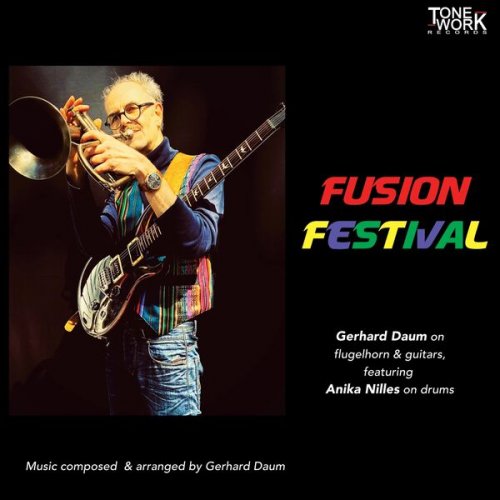

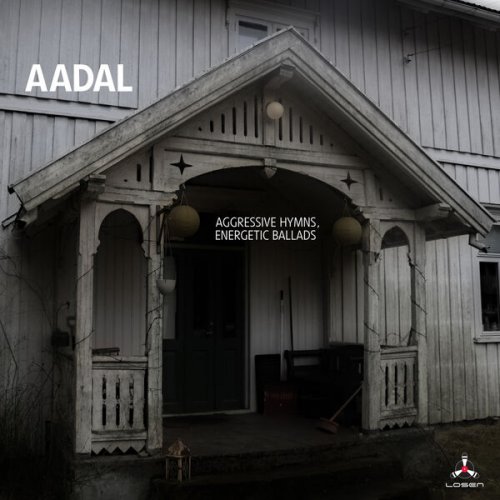
![Juhani Aaltonen - Nostalgia (2026) [Hi-Res] Juhani Aaltonen - Nostalgia (2026) [Hi-Res]](https://img.israbox.com/img/2026-02/20/ocw86a7rfvhkxc576ic9tz17o.jpg)
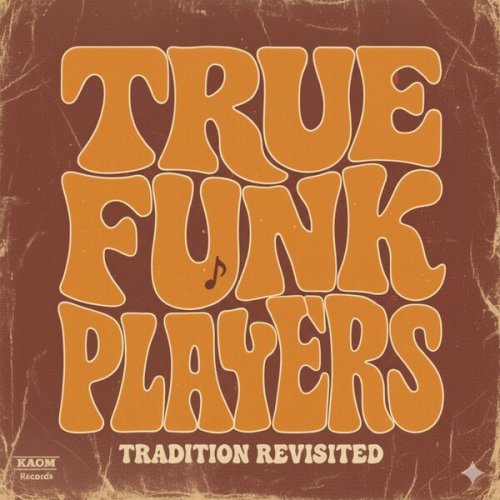

![Danakil Safari - From the Soil (2026) [Hi-Res] Danakil Safari - From the Soil (2026) [Hi-Res]](https://www.dibpic.com/uploads/posts/2026-02/1771561850_h6jyygzrq1lpb_600.jpg)
![L'Oiseau Ravage - Vertiges de la mue (2026) [Hi-Res] L'Oiseau Ravage - Vertiges de la mue (2026) [Hi-Res]](https://img.israbox.com/img/2026-02/20/nx23lj9uf6shoeud9r81rkfqi.jpg)